#I have been avoiding learning Russian cursive
Explore tagged Tumblr posts
Text

@ashintheairlikesnow if you think I'm not trying to finally learn Russian cursive to write Antoni's former name, you're wrong. Antoni is my baby and I love him even more after yesterday ;_;
#Antoni sings lullabies#My Russian baby#I have been avoiding learning Russian cursive#because I'm lazy#but now this gave me motivation#so thank you Ash
18 notes
·
View notes
Text
Link to my masterlist for earlier chapters or other stuff I've written
His Queen
Part 3
Bri ripped open the letter, amazed it was handwritten and in cursive! Knowing Roman, he had an assistant write it, but she felt a warmth in her chest knowing he’d truly loved her all along.
To My Queen, Briana Godfrey,
(Admit it! That sounds way better than Tucker, have the lawyers change it.)
Oh, and before I get into it, I wrote this myself. No assistants, so fuck you for thinking it.
Bri smiled a sad smile at how they still knew how the other thought.
I have to start off by saying thank you for reading this letter. That means you're at the white tower. I don't deserve you. I've turned into everything I never wanted to become. Everything you made me believe I could escape. You are the light to my darkness and I'm so sorry I disappointed you. I don’t have a lot of time, but I needed a plan in case I fail. You’re the only person I trust with my company, my money, my daughter, my legacy, my heart, all of it. I am an absolute crack head level blood addict, and I couldn’t trust myself when we got overly emotional to keep my head. Because I love you so much, you can make me so upset, and That last fight we got into, I scared myself. I don’t blame you for slapping me, but to hold back from returning the blow, I literally broke my own hand... but this is not what this letter is about.
Peter and my sick half-sister Annie have stolen my daughter. Peter is hell-bent on destroying me because he killed Destiny's trash fiance, and lied about it, so she blamed me and attacked me and I hurt her bad enough to foresee issues with peter, so I broke her neck to avoid problems figuring it was showing her some mercy since she was heartbroken. Annie was there and when I refused to carry on an incestuous relationship with her, she turned on me and told Peter about Destiny. So he came after me and fucking shot me, we fought and I won, but didn't cut his head off so I knew he’d be fine. Well, he calls me and has my kid and won't turn her over, and says he's going to kill me so even though I doubt it, Nadia needs someone to raise her, and if I'm killed it's not my whore of a sister Annie. I need you to find Nadia and take her home and raise her as she deserves. She’s such a sweet baby and she adores you.
Find Shelley and she can help you maybe. She’s in love with this weird old poet and chooses to live at the old steel mill. Calls it Rooster Poop. Can’t make this shit up.
The entire security team is trying to find Nadia, so contact them and see where they’re at with it.
you are the love of my life and I refused to ever say so, even though we both knew it was true. I would bullshit and say it’s cuz I was saving you from myself, but I’m not that fucking noble. You scared me more than anything ever scared me in my life. God, it's great to admit I love you. Like I need to make up a new word for how I feel for you cuz love isn’t strong enough.
there’s a pretty poem I saw that reminded me of you;
I’d still choose you.
In a hundred lifetimes,
in a hundred worlds,
in any version of reality,
I’d find you and I’d choose you.
Even though I knew you were going to break my heart again and again.
I’d still choose you.
It’s crazy how happy I am writing you a letter, even with every aspect of my life in shambles, you’re my light.
You get everything. Fuck all of them. You were right about everything. If I survive this shit, I am winning you back if it takes 100 years and I have to spend every cent. This is literally a reset.
I tried to forget your baby girl but I never could. No amount of drugs, money, blood, or bullshit could ever distract me from the constant ache in my heart for only you. You’re the only pussy I ever wanna see again. I ran thru a fantastic amount of pussy after you left and none of them made me forget you for even a moment. I pictured you or I could not get off. It was pathetic. I hope I get to see you again and rip up this fucking letter.
I looked back over this and there’s a reason I have other people write shit up for me. A few requests to seriously consider:
-->Blitzky should take over for Pryce. Not only is he a genius, he's a good guy. He's a bit soft, so you may have to be the bad guy.
-->Get a new nanny. The current one looks good on paper but she's an idiot.
--> Live in the white tower. It's secure and safe and you can make as many floors as you like home.
--> if an animal killed me, it's Peter and he's still a wolf. He’ll be white. Kill him, cut off his head and burn him up in the incinerator.
--> if Annie comes around at all, kill her. She's very manupulative and acts religious and nice. She's crazy and not to be trusted.
-->try and convince Shelley to live in the mansion and have her little homeless community there. She doesn't care about money but she cares about people, so offer it as a safe haven. Make sure it stays stocked in necessities like toilet paper, soap, cleaning materials, etc and write it all off as a charity contribution. Make the whole endeavor a big tax write off, but don't tell Shelley that part. Just tell her it was my dying wish she had a home.
--> the loser she's with has legal problems. Have the legal department solve them so he's got no reason to desert her.
-->if Peters mom comes sniffing around, don't tell her a damn thing. I doubt she will tho, she's a wanted fugitive.
--> don't trust any gypsies.
--> Nadia is very intelligent. She can read minds, influence dreams, and kill anyone or anything just by looking at them. She's dangerous and shouldn't be allowed around animals or people until she can understand the concept of death and consequences. There's no way to control her, I have found.
--> I promised a homeless man I ate that id pay for his sons school. Anonymously pay for Mathew Shandwicks classes, books and dorm at Penn State for all 4 years. His father traded his life without a single complaint so it's imperative you keep my word.
-->make sure Nadia isn't a spoiled brat like me. Teach her about her mother and her father and all the good things about us. Leave out we were related if you can swing it. Just say we were young and loved each other very much. I enclosed a pack of photos of me and Letha for her.
I wonder what you’re wearing... That reminds me; if I’m really dead, you have to be in mourning at least two years. That means all black suits and dresses that cover you up, black nails, big black hats like you just left a Catalina Yacht Mixer or you’re going to a royal wedding. I even got you black lab coats just in case.Don’t half ass this. It’s important.
Also I want “Fuck you” by the Archives played at my funeral, if it comes to that.
Hopefully, you never see this letter because I got everything fixed here, and went and found you and you ran into my arms and we lived happily ever after, and I have a whole lifetime with you... But just in case...
All my love,
Roman Godfrey
P.s. - since you're a genius, hopefully you can fix me or bring me back. I hope you still love me even 10% as much as I love you, because then nothing can stop us.
Brianna stared at the page as her tears fell on it swirling the ink in designs and spirals. She knew he’d always loved her, but it was bittersweet seeing him finally admit it. She took the photos out of the envelope and looked through them.

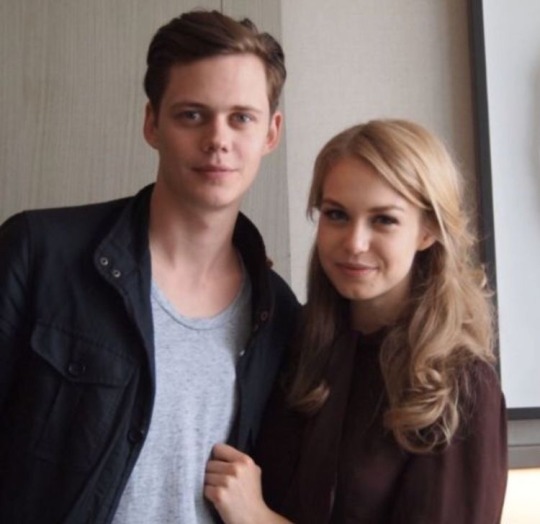
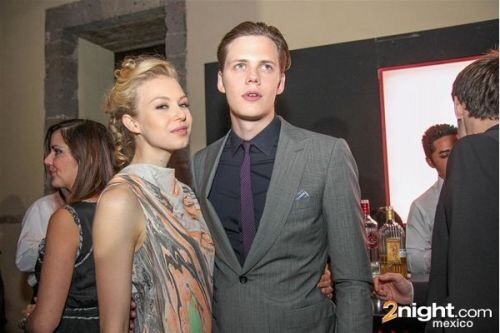
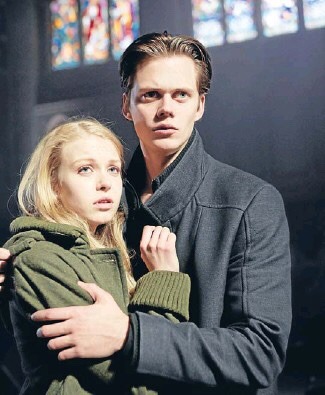

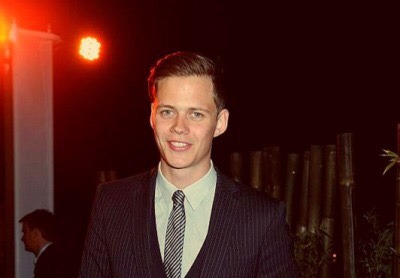
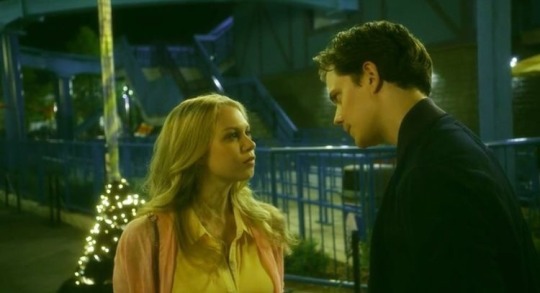

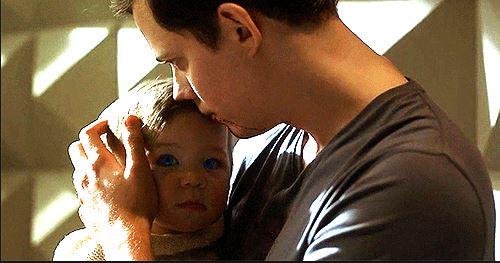
Looking through the pictures was heart-wrenching. There had to be a way to fix all this! She tried to remember everything she’d learned about Upirs from that dreadful Russian women and Pryce. Luckily they’d been a bit of an obsession for her that she delved into when Roman pulled his shit. Being obsessed with Upirs had distracted her from obsessing over the real issue.
Just as she started to wonder when Mueller and Edwards would be back, as if by magic, the elevator doors opened. They had brought Dr. Blitzkey with them as well.
“Oh my gosh! You’re alive! I’m so happy to see you’re ok and still here!” Bri said as she ran up and embraced Blitzky. “Where is Roman? I need to see him.”
Blitzky looked at the ground nervously before meeting your eyes. “It’s not fixable.”
“No matter. I just NEED to see him. Please?” She begged.
“Okay. He has several severe traumatic injuries so please prepare yourself for that.”
“What happened to him?”
“Some Type of animal attacked him in the old mansion and pushed him out the upper story window, fracturing his spine and neck which most likely left him paralyzed and vulnerable. His throat and heart were then ripped out.”
“Peter.” Bri said darkly. He was going to pay for his betrayal. She would make sure of that.
“I mean that’s the most logical conclusion but after all Roman did for that little degenerate, ” Blitzky muttered.
Bri nodded solemnly.
“Hate to interrupt your happy little party but we have several forms that need immediate attention, to get this shit show back on the road,” Edwards interjected.
“They’ll have to wait till after I see Roman. You lead the way Blitzkey, you two stay here.” She said firmly stepping into the elevator with the doctor. Both lawyers looked furious but did as they were told since they were honestly intimidated by this young woman that had all this piled on her, and seemed unfazed.
As soon as the doors closed she sank to her knees and screamed. The tears came flooding out of her eyes as her body was wracked by sobs. It’s like she’d been hit by a truck. The realization that Roman was really gone finally sinking in.
Blitzky didn’t know what he should do. He was a genius, but completely clueless when it came to social and interpersonal skills. He hesitantly patted Bri on the head like a golden retriever, unsure how long was comforting so he just kept doing it. “You’re strong.”
Bri glanced up at Blitzky through her foggy tears and couldn't help but agree. She WAS strong.
The elevator opened to their floor as she looked down at the floor.
“Well” Blitzkey peeped, unsure of what to do, “this is it.”
“We have to fix him Blitzkey. There’s got to be a way.” she said rising to her feet, as if the little display he just witnessed never happened.
“You’re the boss.” Blitzky said as cheerful as he could muster.
“I’m giving you Pryce’s position. I trust you.”
“Thank you! I wasn't sure if maybe you'd want to take charge.... What will you do? Take over for Roman?”
“Until I can bring him back, I guess I’ll have to. I will bring him back Blitzkey.... If I have to make a deal with the Devil himself.” Bri stated adamantly before setting off down the hall like a woman possessed.
11 notes
·
View notes
Text
Teaching Chinese in Mongolia | #7 | September 2019
As I visit the capital to co-present at the English Language Teachers’ Association of Mongolia’s international conference, I take a different turn with today’s blog. Here’s one of my favorite community development projects with Peace Corps Mongolia: teaching Chinese.
Through today’s stories, I recount episodes teaching and practicing Chinese. I also reflect on learning Mongolian. I love in Peace Corps when I use concurrently my “Big Three” multilingual skills in English, Chinese and Mongolian. I hope throughout life I continue these.
Chiefly, of course, I serve in Mongolia to teach English. In fact, I teach it nearly 30 hours a week. I co-teach English, co-lesson plan, develop resources, chat with students, answer questions and advise student clubs. My students sometimes practice their reading skills on this blog, hehe!
But, as I’ve written so often of my city, I’m very fortunate, very blessed. Chinese remains a constant tie for me to my mother and her family, so being able to practice and share it gives great life. With these graces, I serve.
An Exciting Multilingual Moment
One day, one of my school administrators stopped by our department office to translate a note from Mongolian to English. Usually, I might help with my fellow English instructors, but they were elsewhere. One of the instructors, who has her desk near me in our office and teaches Russian, mentioned I know Mongolian, I think. So, our colleague approached me. She teaches Japanese, by the way. Our department is so friendly.
Looking at the handwritten slip signed by our school director, two things felt apparent. One, I can finally read Mongolian cursive! But, two, the note still had unfamiliar words. My confusion must have sounded evident, because soon our department's Chinese instructor walked over. She knows my Chinese is better than my Mongolian. After all, we teach together weekly. So, in Chinese, she discussed with me the unfamiliar Mongolian words.
With that, I finished typing the note in English then sent it to our colleague. What an experience! I returned to my apartment musing what a strange and exciting opportunity to help I had.
Chinese Adventures—Since Week 1
I’ve been having these Chinese moments since the beginning. On our school’s first day, after I taught that English class I recounted in my past story, I returned to our department office for passing period. My first supervisor, having returned from her meeting, shared important news. Our university’s Chinese language program merged with our newly merged Humanities Department! I felt stunned!
An afternoon after the merge, our department rearranged desks so we would work in the same room. And, day-by-day, my fellow instructors introduced me to our colleagues. I could teach with them! Now, I’ve worked among colleagues who instruct all the above languages. Some even teach pedagogy, psychology and international relations. Our students study to become language instructors and global communicators, even businesspeople. All who study English are my students.
Practicing Chinese in Mongolian
Visiting Chinese classes, I love how I forge the missing link in my language abilities. At the university, my Chinese students are third-year majors studying intermediate Chinese and third-year business majors and international relations freshmen studying basic. Hearing my colleagues explain to students the meanings of familiar Chinese vocabulary and grammar using unfamiliar Mongolian, I find myself rapidly repairing my rifts between.
Likewise, I truly enjoy helping my students practice Chinese. Amusingly, as when I studied in China, people seem so amazed by my notetaking. They show my notebooks to others and even photograph them. I hope they help! I’m most helpful teaching pronunciation, which I struggled with as well, before my summers in China. Now, I recognize native pronunciation. Since my Mongolian is so patchy, I wind up speaking straight Chinese sometimes! And though I accidentally teach like a native, I do find myself emulating Chinese instructors from my past.
I also feel astounded how, no matter how many places and times I’ve studied Chinese, I keep feeling I know nothing before I recall I know plenty. For, Chinese speaking styles offer differ. I must read and hear new vocabulary before applying again my familiar expressions. Haha, my winter and spring in 臺灣 Táiwān this year even caused me trouble recalling the common 北京 Běijīng accent again! What a wide world.
Dream Come-True
Yet my tales don’t stop there. After finishing that first week of classes, English and Chinese, I took a break after Mass on Sunday to visit the foreign language room of our city library across the street from church. Maybe I was journaling. The librarian came up to me and asked about the clubs our fellow Peace Corps Volunteers were doing. And during our chat in Mongolian, there entered four high school students, who asked whether we had a Chinese speaking club. I mentioned I know Chinese. Even the librarian said she wanted to learn!
Fast-forward to now, and I’ve been teaching community Chinese lessons at the library to local Mongolians every Sunday after Mass and fellowship. Working adults come, too, to our lessons. But of course, I could host none of these without the support of many gracious and talented community members. By my second week teaching Chinese, I’ve had a team of club leaders helping translate my Chinese characters to Mongolian equivalents. By week three, they’re even teaching our lesson themselves! I’m awed my greatest Peace Corps pipe dream came true.
Consolation
I almost cried on my way home, the Sunday I first taught our Chinese speaking club. In the blackness, as my boots avoided the usual glass while crunching along the dirt, I reflected on the day. It was, too, my first day I experienced Catholic Mongolian language tutoring; then, after Chinese Club, I hiked to a Buddhist temple and even helped, that night, my shopkeeper learn English. Somewhere within me, I love these multilingual, multi-religious adventures. Maybe they’re consolation. Life’s next steps may be magical.
Next: Conference Presentation and Teachers’ Day Performance!
This weekend, I’ve returned to Mongolia’s capital for my first time in a month and a half. Here, I’m presenting with my fellow instructors how to teach creative writing. I trust this blog makes my love of such self-evident...
Lovely for me, the weekend coincides with the memorial to Mongolia’s bishop. I have the opportunity to attend Mass with my city’s parish alongside Catholics from around the nation.
But, as for conference, I’ll get to meet Peace Corps Volunteers from the cohort before me, which always excites me. I’ll even reunite with friends from Номгон! My favorite people are at the university where I’m presenting. I’m ecstatic to meet.
Guess what? I’ve been rehearsing a performance, too, for Teachers’ Day. Anticipate my debut next week, in October!
First Autumn, Looking Inward Months 3 through 5 | August, September, October
Swear-In for Peace Corps Mongolia | #42 | August 2020
University Instructor: Identity and Settling In | #5 | August 2019
Loving First Week, University Instructor! | #6 | September 2019
Teaching Chinese in Mongolia | #7 | September 2019
Piercing Nights Amid Autumn’s Sights | #8 | September 2019
A Broken Language and Water’s Phases | #9 | October 2019
#Jesus#Selenge#university#college#memoryLang#motivation#language#inspiration#community#service#adventure#English#Catholic#Chinese#student#teacher#story#memoir#Mongolia#PeaceCorps
3 notes
·
View notes
Photo


Secret Knowledge—or a Hoax?
The Voynich Manuscript edited by Raymond Clemens, with an introduction by Deborah Harkness Beinecke Library/ Yale University Press, 304 pp., $50.00
In 1969 America’s most significant dealer in medieval manuscripts, the Viennese-born bibliophile Hans Peter Kraus, donated a celebrated volume to Yale University’s Beinecke Library. Measuring ten inches by seven and bound in limp white vellum (the Renaissance bookbinder’s equivalent of paperback, and definitely not the original cover), Kraus’s gift was cataloged as Beinecke MS 408.
The manuscript’s celebrity is at first sight puzzling, since it is an unglamorous, even somewhat shabby object: 234 pages gathered in eighteen “quires,” or foldings, each consisting of between one and six double pages, or “bifolia.” Very unusually for a medieval manuscript, Beinecke MS 408 also includes eleven larger “foldout” pages, containing what appear to be astronomical or astrological diagrams. At some date after the book’s compilation, each folio was numbered in ink on the right-hand opening (technically known as the recto).
The first 130 pages of the volume are taken up with what appears to be an herbal, each page containing a large if somewhat sloppily executed drawing of a plant, depicting root, stem, flowers, and leaves, around which extensive text, in no recognizable language but written in a fluent cursive hand, has been carefully arranged so as to avoid encroaching on any part of the picture. This “herbal” section is followed by a cluster of large foldout pages decorated with circular zodiacal or astrological diagrams, and this in turn gives way to a section of ten folios containing yet more unrecognizable text, interspersed with decidedly unerotic drawings of groups of plump naked women, bathing in pools and conduits of blue or green water, which some students of the manuscript have suggested might be symbolic representations of bodily functions such as reproduction.
After a further group of large foldout pages with more astronomical images, there follows another cluster of “herbal” images. These consist of multiple small drawings embedded in the text of each page, alongside objects in the margin that resemble pharmacological jars, perhaps suggesting that this part of the manuscript refers back to the opening herbal, and was intended as a collection of medical recipes. The book’s closing section consists of twenty-three pages of closely written text without illustration, made up of short paragraphs of just a few lines apiece, each paragraph prefaced by a star or asterisk.
Kraus had bought this baffling manuscript as a commercial speculation in 1961, for $24,500 plus a half share in any future profit. The vendor was Anne Nill, secretary, professional collaborator, and ultimate heir of the manuscript’s first discoverer, a remarkable Polish-Lithuanian bookdealer and adventurer, Wilfrid Michael Voynich. Born in 1864 and a graduate in law and chemistry from the University of Moscow, Voynich had been arrested in 1885 as a revolutionary Polish nationalist and had spent five years in exile in Siberia. Escaping via Mongolia on a forged passport, Voynich had ultimately arrived penniless in England, having bartered even his spectacles and waistcoat to pay for his passage. Initially drawn again into revolutionary circles in London around the Ukrainian political agitator Sergei “Stepniak” Kravchinsky, Voynich was befriended by Richard Garnett, keeper of the British Museum Reading Room, the regular haunt of late-nineteenth-century Russian and other Eastern European exiles.
It was at Garnett’s suggestion that Voynich put his omnivorously eclectic learning, his cosmopolitan personal connections, and his gifts as a linguist to use as a buyer and seller of rare books, a field in which he rapidly established himself as a piratical and successful entrepreneur. A flamboyant personality regarded with hostility or condescension by less successful dealers and more orthodox bibliophiles, Voynich packed his catalogs with arcane bibliographical detail, which established his reputation for near omniscience: he was soon making money. Specializing at first in incunabula—books printed before 1501—he sold to prestigious collectors and libraries, including the British Museum, which bought the entire contents of his eighth catalog. The books from that purchase, now shelved together in the British Library, provide a snapshot of the rich contents of Voynich’s shop in Soho Square, later moved to the grander purlieus of Piccadilly.
The precise circumstances surrounding Voynich’s acquisition of Beinecke MS 408 are obscure, but it had certainly been one of a group of manuscripts and books from the library of Athanasius Kircher, the seventeenth-century Jesuit polymath and scientist. Kircher’s books were rescued from confiscation by the new state of Italy during its stand-off with the church in the years after unification in 1871, along with other rarities from the library of the Jesuit university in Rome, the Collegio Romano, where Kircher had been a professor for forty years. More than three hundred of these hidden Jesuit treasures ultimately ended up in the Vatican Library, but in 1912 Voynich, who regularly toured Italy in search of incunabula and manuscripts, managed to buy a few. One of these, described by Voynich as the “ugly duckling” of the former Collegio Romano collection, was the future Beinecke MS 408.
If Voynich labeled his acquisition an ugly duckling, he was nevertheless convinced that he had acquired an exceptional swan in the making, for he believed its baffling text concealed a scientific treatise of major importance by one of the greatest minds of the high Middle Ages. In this belief, he was following a letter from the Prague physician Johannes Marcus Marci to Kircher, dated August 19, 1665, which had been tucked inside the manuscript. Marci’s letter claimed that the manuscript was the work of the thirteenth-century English Franciscan scientist and alchemist Roger Bacon, and that more recently it had been acquired for the library of the emperor Rudolf II for the very large sum of six hundred golden ducats.
The alleged connection to Bacon would prove to be illusory, but Rudolf’s avid interest in alchemy, astrology, magic, and all manner of occult studies, together with the presence on the first leaf of the manuscript of the signature (now invisible to the naked eye) of Jacobus Hořčický de Tepenec (circa 1575–1622), court pharmacist to the emperor, ennobled by Rudolf in 1608, lends plausibility to the alleged imperial provenance. Marci’s motive for presenting Kircher with the manuscript was to induce him to decipher the text.
This was not the first such appeal. Marci had acquired the book from the library of another Bohemian alchemist, Georgius Barschius. In 1637 Barschius himself had copied extracts from the manuscript and sent them to Kircher, who, among much else, was an expert on Oriental languages and whose Lingua Aegyptiaca Restituta (1643) would be regarded as a foundational text for the study of Egyptian hieroglyphics. So Barschius hoped that this all-knowing “Oedipus of Egypt” was just the man to decipher his enigmatic manuscript, “a certain riddle of the Sphinx,” which he believed must have been written in a code or cipher, as alchemical and magical treatises often were. Kircher told another Prague-based Jesuit mathematician, Theodor Moretus, that he had indeed tried unsuccessfully to decipher the text: marginal traces of an early effort to supply equivalents from the Latin alphabet for the mysterious letters in the manuscript itself may be relics of these attempts at decryption.
Voynich was immensely excited by all this. His knowledge of the court of Rudolf II was not very deep, and largely derived from a popular history of scientific and alchemical studies at the Prague court published in 1904 by Henry Carrington Bolton, an American chemist, bibliographer, and historian of science. Bolton’s book, The Follies of Science at the Court of Rudolf II, 1576–1612, gave a prominent place to the English magician and alchemist John Dee, who with his assistant and “scryer,” Edward Kelley, spent years attempting to communicate with angels, in order to learn the universal language spoken by Adam in Paradise before the Fall.
Dee’s journals contained passages in an arcane alphabet purporting to be written in this language. To Voynich, here was the obvious background for his mysterious new acquisition, and Dee’s presence in Rudolfian Prague seemed to provide a plausible conduit for the transmission of a mysteriously encrypted text by Roger Bacon to the court of the alchemist emperor.
Voynich eagerly set about publicizing his manuscript, which he valued at the huge sum of $100,000, and which he invariably referred to as “the Roger Bacon Cipher Manuscript.” Especially after the outbreak of war in 1914, his business was increasingly in the United States, and on his many trips to America he did everything he could to talk up the importance of his find. He told The New York Times that “when the time comes, I will prove to the world that the black magic of the Middle Ages consisted in discoveries far in advance of twentieth-century science.”
To supplement his own attempts to decrypt the manuscript, he made photographs of individual pages available to inquirers. In a time of war, Voynich’s endless harping on decryption prompted suspicions that he might be a spy attempting to penetrate American security, but the decipherment of the so-called Roger Bacon manuscript aroused considerable scholarly interest. It was enthusiastically embraced by distinguished medievalists, including the Chicago-based textual scholar John Matthews Manly, who publicized Voynich’s find in an article in Harper’s Magazine in 1921 as “The Most Mysterious Manuscript in the World.”
Even more sensationally, William Romaine Newbold, a distinguished medievalist and historian of medicine at the University of Pennsylvania, toured academic and popular lecture halls with the announcement that he had cracked the code in which this mysterious manuscript was written, and that it did indeed contain amazing revelations. These included the claim that Bacon, in the thirteenth century, had understood and made use of both the compound microscope and the telescope, and with their aid had anticipated the discoveries of twentieth-century scientists about germ cells, spermatozoa, and other mechanisms of organic life.
Newbold’s supposed decryption of the Voynich manuscript was taken at face value by world-class scholars like the French medievalist Étienne Gilson, but it was in fact based on an elaborate set of misunderstandings and unfounded hypotheses. Newbold’s entire scheme was mercilessly demolished in 1931 in a devastating article in the medieval journal Speculum by none other than J.M. Manly, now disillusioned about all claims to have cracked the Voynich manuscript code. Voynich himself had died of cancer the previous year, but despite the disproof of Newbold’s theories and the inaccessibility of the manuscript itself (now locked away in a bank vault by Voynich’s widow, Ethel), interest in its mysteries grew. Although he rejected Newbold’s claims, Manly remained intrigued by Voynich’s manuscript. During World War I he himself had worked as a US Army cryptographer. In 1916 he had been befriended by William F. Friedman, America’s most talented maker and breaker of codes, and reputedly the world’s greatest cryptologist.
At that time Friedman was based in the department of ciphers at the private research institute funded by the textile magnate George Fabyan at Riverbank, near Chicago. Fabyan was an ardent believer in the theory that Shakespeare’s works had in fact been written by Francis Bacon (no relation to Roger Bacon), and the chief code-breaker at Riverbank, Elizabeth Wells Gallup, was the principal advocate of the theory that Bacon had not only written all of Shakespeare, but also the plays of Christopher Marlowe as well as Richard Burton’s immense Anatomy of Melancholy. Convinced that all these pseudonymous works were dense with encrypted secret messages, she devoted manic ingenuity to decoding them. Friedman and his wife Elizebeth, initially employed as Gallup’s assistants, came to reject her bizarre theories, but the world of American cryptology in the aftermath of the war was saturated with conspiracy theories and fascination with the idea of hidden mysteries in ancient texts.
Friedman, who ultimately became head of cryptology at the National Security Agency, was one of those who applied to Voynich for photographs of his manuscript. He remained intrigued to the end of his life by the attempt to decipher it, and built up what is probably the largest private archive of material relating to it. During World War II, Friedman’s team was at the center of successful cracking of the Japanese secret code, “Purple,” by US intelligence; but from 1944 onward he found time to establish a special study group devoted to decrypting the Voynich manuscript, which met regularly at Arlington Hall, America’s equivalent of Britain’s code-breaking center at Bletchley Park.
After the end of World War II, Friedman convened prestigious scholarly seminars devoted to the manuscript. He involved, among many others, Brigadier John Tiltman, the noted British cryptographer and assistant director of the British Intelligence Headquarters (GCHQ), in attempts to decode the manuscript. At Tiltman’s suggestion a young NSA cryptologist, Mary D’Imperio, was appointed to continue the ailing Friedman’s work on it, and in 1978 she would eventually publish, under the auspices of the National Security Agency, what is still considered the best introduction to its mysteries, The Voynich Manuscript: An Elegant Enigma.
But all to no avail. Voynich’s find retained its secrets, and by the time of Friedman’s death in 1969, the year Kraus donated the manuscript to Yale, Friedman himself had concluded that rather than being an encrypted text written in cipher, the Voynich manuscript was an early-sixteenth-century attempt to create an artificial universal language.
This steady expansion of interest in the Voynich manuscript was the background to Kraus’s speculative purchase in 1961. Like Voynich, Kraus believed this “ugly duckling” might one day lay a golden egg. To preserve its commercial value, he rejected all requests for scholarly access to it and refused to lend it to exhibitions. He put it on the market for $160,000, but despite the escalating scholarly and cryptological fascination, there were no buyers. So in 1969 he decided to cut his losses gracefully and donated Voynich’s ugly duckling to Yale.
The deposit of the Voynich manuscript in a great university library at last made sustained scholarly analysis possible, and over the four and a half decades of Yale’s custodianship some certainties have been established, and some myths laid to rest. Exhaustive scientific and conservational analysis of the parchment on which the manuscript is written, the stitching of the binding in which it is contained, and the inks and paints with which it was written and illuminated have disposed of the notion that the manuscript dates from the thirteenth century or that it is the work of Roger Bacon. Radio carbon dating of slivers from a range of pages has firmly dated the book’s materials to the years around 1430. The vellum pages are made of good-quality (and therefore expensive) calfskin, commonly used in book production all over medieval Europe. (Goatskin vellum, by contrast, would have strengthened the case for a southern German or Italian origin, a provenance favored by many students of the manuscript.)
Equally, all this effectively rules out any possibility that the manuscript is a post-medieval forgery—it is inconceivable that the huge quantities of blank parchment needed for such a forgery could have survived from the early fifteenth century. The book’s pages, whose consistency suggests that they derived from a single source, would have required at least fourteen or fifteen entire calfskins. It is therefore overwhelmingly likely that the manuscript was written and illustrated soon after the parchment was prepared, in the first third of the fifteenth century. Its fluent cursive handwriting, without emendation of any kind, seems incompatible with the notion that it might nevertheless be a careful scribal copy of an earlier medieval text. The dating of its materials to the early fifteenth century rules out the suggestion, credited by art historians like Erwin Panofsky, but never very convincing, that the manuscript contains illustrations of plants such as capsicum or the sunflower, unknown before the discovery of the New World.
Scientific study has gone alongside steadily growing public interest. More than 10 percent of the visits to the Beinecke Library website relate to the Voynich manuscript, as do almost 50 percent of visits to the website’s zoom-viewer, which enables close-up examination of single pages. When Umberto Eco, the semiologist, medievalist, and author of the best-selling medieval puzzle-novel The Name of the Rose, lectured at Yale to celebrate the Beinecke Library’s fiftieth anniversary, the only one of its many treasures he asked to see was the Voynich manuscript. In an era when the fictions of Dan Brown can be imagined to have lifted the lid on ancient conspiracies, none of this is perhaps surprising. The publication by Yale University Press of an actual-size colored facsimile, with an informative set of specialist essays on the manuscript’s history, materials, cryptological puzzles, and public impact, will no doubt encourage wider engagement with its enigmas and set off a multitude of amateur as well as professional attempts to decipher it.
But if we can be fairly sure that the manuscript is not a modern forgery, it by no means follows that it is not in fact a medieval hoax. Four centuries of attempts to decode, decipher, or translate the text have all ended in bafflement. The finest cryptological minds of the twentieth century and sustained computer analysis alike have drawn a blank; the text refuses to yield meaning. Attempts to find parallels to the text in cabbalistical, hermetic, or alchemical code systems have all thrown up more disparities than resemblances. What if the book’s mysteries are in fact pure mystification, specious appearance that never had any real meaning?
This is a possibility strongly suggested by the manuscript’s single largest component, the herbal, with its crudely colored images of plants. No student of the herbal illustrations has ever succeeded in identifying convincingly a single image as any known plant. Medieval herbals were rarely based on exact observation from nature, but even by the conventions of medieval botanical representation, the Voynich images are, collectively and singly, biological impossibilities. Roots and branches bifurcate and then rejoin again to form a single stem (folios 5v, 22, 23, 40, 52), two separate stalks are joined by a single lateral branch or end in the same single leaf (23), slender stalks emerge from holes in the thick flat surfaces of roots that have been cut across like sawn tree trunks (14, 16, 16v, 19, 39v, 45v), and spiky leaves exactly mirror the forms of the same plant’s improbable roots (54).
In other words, the “plants” represented in the book’s herbal section never did and never could exist in nature: they are pure fantasy. And if the images are, then possibly the text is too. Even an uninformed observer examining any random pages of Beinecke MS 408 will be struck by the highly repetitious character of the text, with the same symbols and clusters of “letters” occurring in consecutive words and lines. This is a feature of the Voynich manuscript that has often been noted. It is one of the reasons for suspecting that the text is not in fact a real language at all, cunningly concealed, but an elegantly scripted but meaningless babble, deploying a limited number of forms over and over again.
Why might such a hoax have been perpetrated? The sheer scale, expense, and complexity of the Voynich manuscript would seem to preclude the notion that it was assembled as some kind of joke: it’s hard to imagine a punch line that required so elaborate a buildup. That leaves lunacy or lucre as possible motives. Madness can’t entirely be ruled out: mania takes many forms, and a well-to-do obsessive convinced he (or she) held the key to great secrets might drive the production of such a compilation.
But the likeliest motive surely must be money. The modern history of the Voynich manuscript, and the huge investment of time and effort by some of the most ingenious intelligences of the twentieth century in its decipherment, amply testify to human fascination with the possibility of uncovering secret knowledge. Back in the sixteenth century Rudolf II paid some persuasive soul six hundred gold ducats for Beinecke MS 408. It may well be that somewhere in early-fifteenth-century Europe another wealthy seeker after hidden truths was swindled by an equally enterprising purveyor of plausible nonsense. We shall probably never know. But maybe from the pages of Voynich’s “ugly duckling,” a long quack of derisive laughter peals down the centuries.
http://www.nybooks.com/articles/2017/04/20/voynich-manuscript-secret-knowledge-or-hoax/
0 notes